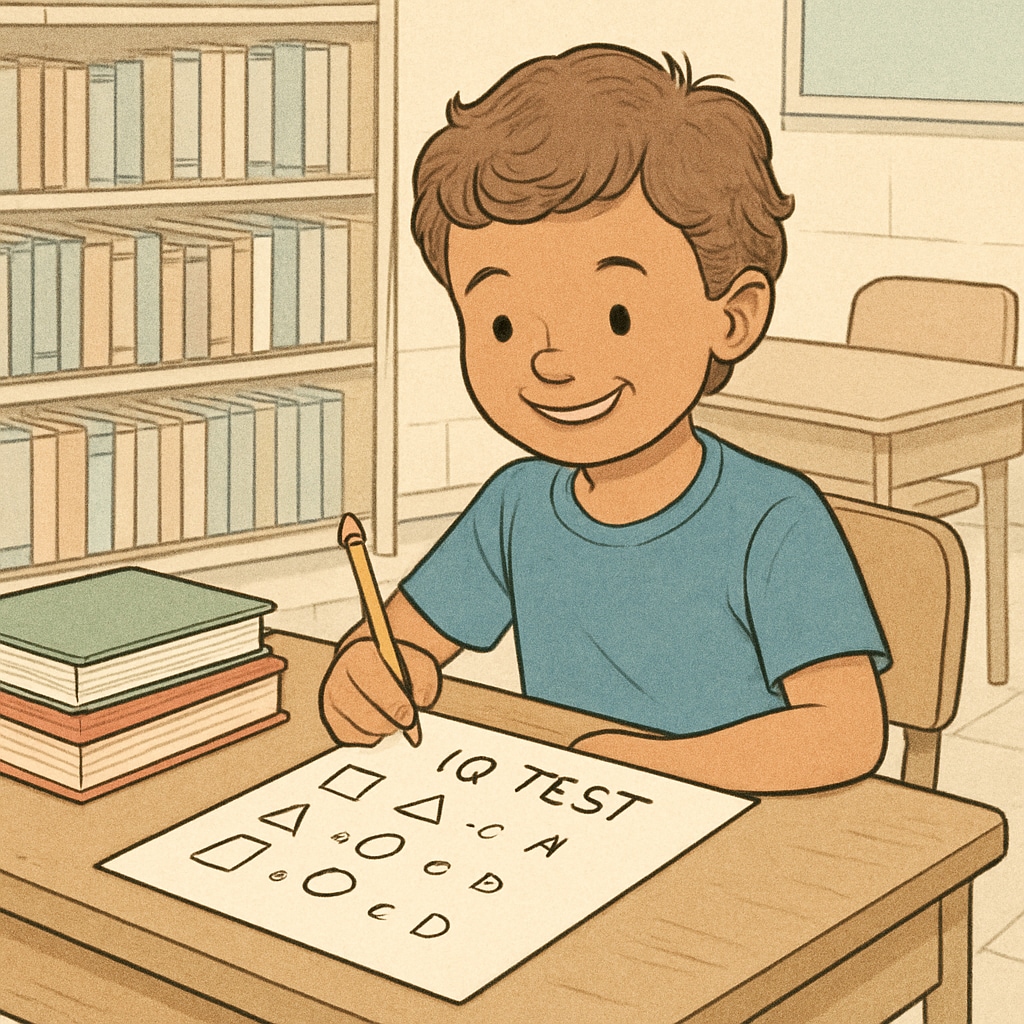When it comes to identifying gifted children, IQ testing plays a crucial role in evaluating their potential and creating personalized educational plans. Among the various tools available, the Cognitive Abilities Test (CogAT), Wechsler Intelligence Scale for Children (WISC), and Stanford-Binet Intelligence Scales are the most trusted standards in this field. In this article, we will provide a detailed overview of these tools, explore their unique characteristics, and guide parents and educators in selecting the most appropriate method for assessing a child’s abilities.

Key IQ Testing Standards for Gifted Children
Parents and educators often wonder which IQ test is the most suitable for identifying a child’s talents. Each test has been developed with specific strengths that cater to different aspects of cognitive evaluation. Below, we explore three of the most widely used IQ testing standards:
- Cognitive Abilities Test (CogAT): This test measures reasoning skills across three domains: verbal, quantitative, and nonverbal. It is particularly useful for identifying patterns of cognitive strengths and weaknesses, making it ideal for group testing environments.
- Wechsler Intelligence Scale for Children (WISC): The WISC is one of the most comprehensive tools for assessing individual intelligence. It evaluates a wide range of cognitive abilities, including working memory, processing speed, and verbal comprehension.
- Stanford-Binet Intelligence Scales: Known for its historical significance, the Stanford-Binet test is highly regarded for its ability to assess both verbal and nonverbal intelligence. This test is particularly well-suited for advanced learners who require in-depth evaluation.
Each of these tools has its own strengths, and the choice often depends on the child’s unique needs and the specific goals of the evaluation process. For example, while the CogAT is excellent for identifying group trends, the WISC and Stanford-Binet provide more detailed insights into individual capabilities.
How to Choose the Right IQ Test
Selecting the right IQ test requires careful consideration of several factors. These include the child’s age, learning style, and any specific areas of interest or concern. Below are some tips to help guide the selection process:
- Consider the Purpose: If the goal is to identify giftedness in a classroom setting, the CogAT may be the most practical choice. For more in-depth analysis, the WISC or Stanford-Binet might be better suited.
- Evaluate the Child’s Strengths: Some children excel in verbal reasoning, while others show strengths in nonverbal or quantitative areas. Understanding these traits can help determine which test will provide the most accurate results.
- Consult with Experts: Educational psychologists and gifted education specialists can provide valuable insights and recommend the most appropriate tool based on the child’s profile.
In addition, it is essential to ensure that the testing environment is supportive and stress-free. This helps the child perform to the best of their abilities and ensures the accuracy of the results.

Applications of IQ Testing for Gifted Children
IQ tests are not just about identifying giftedness; they also play a critical role in shaping educational pathways. Here are some of the key applications:
- Curriculum Customization: Test results can help educators design personalized learning plans that cater to a child’s strengths and address areas for improvement.
- Program Placement: Many schools use IQ test scores to determine eligibility for advanced or gifted education programs.
- Early Intervention: Identifying cognitive strengths and challenges early allows for timely interventions, ensuring that children reach their full potential.
Learn more about the science of IQ testing on Britannica.
While IQ tests are invaluable tools, they are just one piece of the puzzle. A holistic approach that considers emotional intelligence, creativity, and social skills is essential for nurturing well-rounded gifted children.
In conclusion, IQ testing is a powerful method for evaluating the abilities of gifted children. By understanding the unique features of tests like CogAT, WISC, and Stanford-Binet, parents and educators can make informed decisions that support each child’s individual learning journey. Whether you are identifying talents or planning educational strategies, these tools offer a reliable foundation for success.


